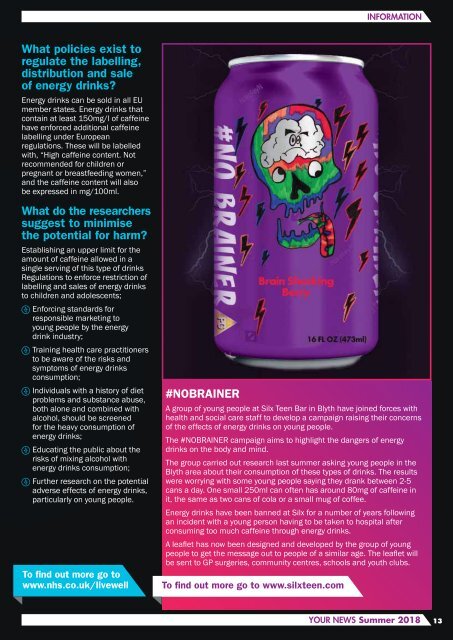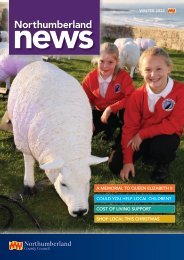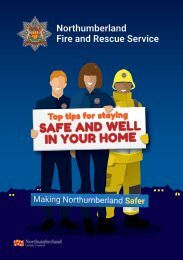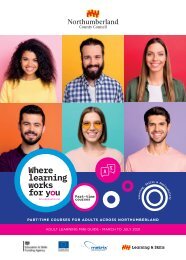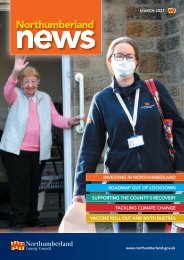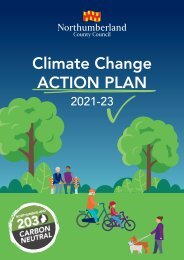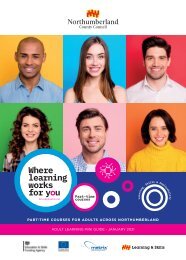Your News - Summer 2018
Create successful ePaper yourself
Turn your PDF publications into a flip-book with our unique Google optimized e-Paper software.
INFORMATION<br />
What policies exist to<br />
regulate the labelling,<br />
distribution and sale<br />
of energy drinks?<br />
Energy drinks can be sold in all EU<br />
member states. Energy drinks that<br />
contain at least 150mg/l of caffeine<br />
have enforced additional caffeine<br />
labelling under European<br />
regulations. These will be labelled<br />
with, “High caffeine content. Not<br />
recommended for children or<br />
pregnant or breastfeeding women,”<br />
and the caffeine content will also<br />
be expressed in mg/100ml.<br />
What do the researchers<br />
suggest to minimise<br />
the potential for harm?<br />
Establishing an upper limit for the<br />
amount of caffeine allowed in a<br />
single serving of this type of drinks<br />
Regulations to enforce restriction of<br />
labelling and sales of energy drinks<br />
to children and adolescents;<br />
Enforcing standards for<br />
responsible marketing to<br />
young people by the energy<br />
drink industry;<br />
Training health care practitioners<br />
to be aware of the risks and<br />
symptoms of energy drinks<br />
consumption;<br />
Individuals with a history of diet<br />
problems and substance abuse,<br />
both alone and combined with<br />
alcohol, should be screened<br />
for the heavy consumption of<br />
energy drinks;<br />
Educating the public about the<br />
risks of mixing alcohol with<br />
energy drinks consumption;<br />
Further research on the potential<br />
adverse effects of energy drinks,<br />
particularly on young people.<br />
To find out more go to<br />
www.nhs.co.uk/livewell<br />
#NOBRAINER<br />
A group of young people at Silx Teen Bar in Blyth have joined forces with<br />
health and social care staff to develop a campaign raising their concerns<br />
of the effects of energy drinks on young people.<br />
The #NOBRAINER campaign aims to highlight the dangers of energy<br />
drinks on the body and mind.<br />
The group carried out research last summer asking young people in the<br />
Blyth area about their consumption of these types of drinks. The results<br />
were worrying with some young people saying they drank between 2-5<br />
cans a day. One small 250ml can often has around 80mg of caffeine in<br />
it, the same as two cans of cola or a small mug of coffee.<br />
Energy drinks have been banned at Silx for a number of years following<br />
an incident with a young person having to be taken to hospital after<br />
consuming too much caffeine through energy drinks.<br />
<br />
<br />
be sent to GP surgeries, community centres, schools and youth clubs.<br />
To find out more go to www.silxteen.com<br />
YOUR NEWS <strong>Summer</strong> <strong>2018</strong><br />
13


